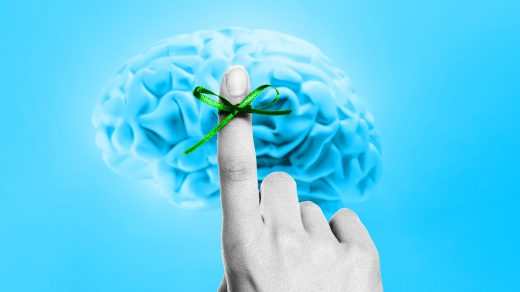This is how you can make your brain remember the most important things
This is how you can make your brain remember the most important things
Forgetting may be the universal human condition, but there are ways to train your brain to hold on to the important stuff.
How much of your childhood do you remember? I think of myself as having a pretty good memory, but the many years of my childhood exist in my mind as a handful of moments. Having kids has made me think a lot more about the memories we make and keep and how we often have very little control over what we retain and what we forget.
The human brain can feel complex and mysterious, and even those of us who think we are good at remembering forget most of our lives.
“Forgetting is the universal human condition,” neuroscientist Charan Ranganath explained to Fast Company writer Gwen Moran. There’s a trade-off between the vast quantity of information to which we are exposed and how much of it our brain determines to be relevant. Improving memory is not about trying to hang on to every little experience, he says. “It’s more focused on grabbing what’s important and what really matters.”
Knowing that, we luckily have a lot of research on how our brains retain things and how we can teach ourselves to hold on to more of what matters.
Here are three times you can forget things and how to improve your memory:
When you’re multitasking
This one feels obvious: You can’t remember something if you aren’t paying attention to it. Yet, we so often try to do more than one thing at a time, and distractions (email, Slack messages, interruptions from a coworker) pull our attention away.
Lots of people think they’re good at multitasking, but research shows almost none of us are. In fact, it’s been shown that multitasking in meetings causes the same cognitive drop as smoking weed. Why? Every time you shift your focus from one thing to another, there’s a “switching cost,” Ranganath says. “We’re constantly switching the dial on what’s supposed to be important, [so] we’re getting these fragmented blurry memories of things that are going to be lost,” he says.
It’s hard not to multitask, but I often think about that fragmented attention when I’m with my kids. I may not be able to control what they retain of their childhood, but I can help the odds that I’ll remember those fleeting moments. And I’ll be less likely to make mistakes in an important email if I respond when I’m not also playing a board game.
When you intend to do something, but it slips your mind
This can be a huge source of conflict both at home and work. In your home life, if there’s one person who always intends to do household tasks but forgets, it increases the mental load of the person who has to pick up the slack. That can build a lot of resentment if it’s not addressed. At work, forgetting to send an email or attend a meeting or complete a task can have detrimental impacts on your career.
“Whether you intend to vote, get a flu shot, or meditate, there is an action/attention gap that’s as wide as the Grand Canyon. And it’s so solvable,” Katy Milkman, a professor of operations, information, and decision at the Wharton School, told Fast Company writer Stephanie Vozza.
To overcome that gap, Milkman suggests thinking through the details by planning through any necessary logistics that doing a task will require. This helps you anticipate potential pitfalls, too. It can also help to assign a date and time to the task. So rather than writing a to-do list with “send status report,” put it on your calendar with a reminder: “1 p.m. Wednesday: Send status report.”
When you work with others
When you have an argument with your partner, they often seem to have a totally different recollection of events—one in which they didn’t do anything wrong. When police interview eyewitnesses, they will all describe the events and suspects differently. And at work, if you ask coworkers about how a project came together, they may have totally different memories of who came up with what ideas, or even whether meetings or discussions actually took place.
Why? One reason is ego. We all tend to paint ourselves as the hero of our own life story. As Fast Company contributor Art Markman points out, our brains tend to rewrite history even as it’s happening. Which means that you typically interpret your own actions in the most charitable way and give less credit to others than they may deserve. Markman says much of this interpretation happens at the time the events are initially experienced, and so they are baked into the memory of the event.
So how can you more accurately remember events? Well, as Markman points out, it’s actually not a bad thing that we can only focus on our side of an experience. But it proves that in order to have a full picture of what happened, we need each other to fill in the gaps.
If all else fails, you can always fall back on the tried-and-true method of writing things down. Science has shown that taking notes by hand makes you more likely to retain information. It’s useful when getting an assignment from your boss, trying to stay focused in a meeting, or even when your kid does something particularly endearing. That’s why every night before bed, I write a few sentences of what happened that day. After all, our memories might fade over the years, but my notebooks will last.
ABOUT THE AUTHOR
(19)



